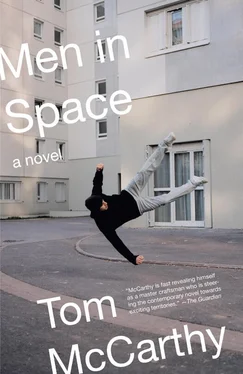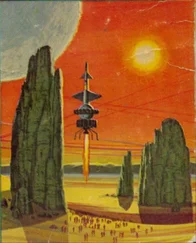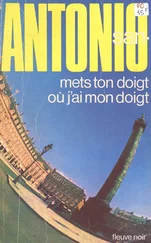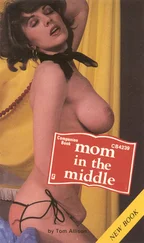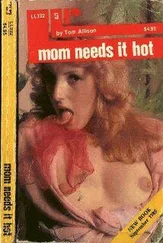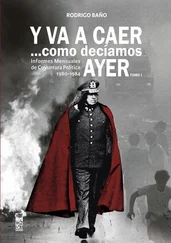“You do know, don’t you? Don’t you?”
Of course he does. “Ilievski.”
The hands go up now and gently bounce at head height beside the eyes that, like the hands, are turned up towards heaven. The Italianate look again: Thank you for sending me the right answer . Then they’re lowered to the table top to rest there, palms down. “Ilievski! Exactly, Anton! They want your uncle Constantine. Not just for the painting: they want him for everything he does. And you, Anton, can give him to them on a plate.”
Betrayal. The enormity of it. The garden at Gethsemane: that kiss. He’s seen it painted on churches’ walls. Even the soldiers, the Romans, seemed to recoil in horror at what Judas was doing. And now he’s got to decide whether … His turn to speak. He’s not being hurried into answering. The thin, dark-haired man knows as well as he does that there’s only one way out, the way he’s just mapped for him to the door, the final door, the only one that exits from the labyrinth he’s come and found Anton locked right at the centre of — the door he’s now holding ajar, letting Anton’s darkness glimpse its chink of light. This is what Anton sees superimposing itself over this room: a dark labyrinth, and light spilling through a slightly open door. The light illuminates the walls, the floors, everything. If Anton doesn’t run straight away towards the door it’s because he wants to relish this amazing clarity. He’s never in his life seen things like this before. The light is flooding in, turning the walls to pure, transparent crystal …
If he turns back and looks inwards, he can see not just his present situation laid out with perfect visibility, but also his whole past: his childhood, adolescence, adulthood. He can see everyone he knows, each living their lives in one or another of the bright, clear rooms. He can see Uncle Stoyann in Philadelphia, checking candles in his church’s vestry, restocking shelves in cupboards behind purple curtains, placing lumps of incense in box drawers, the green gauze rubbing off and crumbling; he can see his mother pottering around the garden of the little dacha outside Dragalevtsi, turning the brown earth over with her long, thin pitchfork, wrenching out kohlrabi every autumn, one more year, another tiny harvest; he can see his father sleeping in the same brown earth nearby; and Toitov, older, greyer, still waving his pointer at the blackboard in the room where he met Helena; and all the other students who took Physics 7, their lives now, some of them qualified engineers like him, others working in white coats in state laboratories or themselves waving pointers in front of adolescents in high schools; and every player in each game he’s refereed, their names, numbers and positions …
He can see the lines and vectors linking all these people to one another, the trajectories along which they’ve travelled to get where they are. And he can see something else as well — two things which, although small, are somehow even brighter than the bright structure around them. They’re two things he thought were somewhere else, buried away in some other labyrinth entirely. The lines from every other part of the structure are converging on these two: strands as thin and silky as those spiders’ threads that float above the frosted grass of pitches on cold winter mornings, but as strong and tenacious as suspension bridges’ cables. The strands converge on these two and then lead out again, separating, splitting, each heading their own way. The two are at a node, a point of high intensity — a point that Toitov, tugging at the strand that leads from him to Anton and to them, is telling him is pivotal . And Anton can see that if he can just get to that point, feel out its axis, pull the strands in a particular direction, in particular directions around it, then a turning force will be produced, a moment, and the leverage will spread a change through the entire network: everything will move together in a way he wouldn’t ever have thought possible, until now …
He’s going to do it. He’s got to do it; he’s driven by a compulsion stronger than self-preservation, fear, shame — anything. It doesn’t matter if he’s showered with coffee, screamed at, hit: this is so much bigger. His whole body trembles as he looks up and dares himself to say it, his voice barely audible:
“I’ll do it if we get the children back.”
The dark-haired man’s hands are still there, palms down, on the table, but the poise is going out of them, out of his shoulders, his whole body. None of him knows where to go next.
“You mean your wife’s children? The ones who …”
“The children. Yes, I mean the children. You know about them. You know everything.”
The dark-haired man’s eyes look away down to his left. He’s not denying it; there’s no point. His torso twists around, following the eyes. He pushes his chair back, stands up, walks to the room’s far corner and faces into it. After a few seconds he turns back and says hesitantly:
“Anton, I’m not really in a position to …”
“You are. You know you are.” He’s not going to stop now. “It’s a system, you see. Like with weights and pulleys and … and levers. It all balances out perfectly. Your people have the painting …”
“It’s with Interpol, I told you.”
“It’s in your jurisdiction.” This point’s not contested. Anton continues: “You’ve got this national treasure which Bulgaria wants back. And you want Ilievski, who I’ll give you. I’ll tell you anything you want to know. I’ll testify about everything he’s ever done: the painting, passports, cars, protection, the whole lot. I’ll stab him in the back before your eyes if that’s what you want. Me, what I want …”
“What we’re giving you is freedom, Anton …”
“Fuck your freedom!” He can see the dark-haired man’s shoulders flinch as his muscles contract now. “I’ll go to prison for ten lifetimes if I have to! You can institute the death penalty and I’ll check the wiring on the chair for you myself. I don’t care! You won’t get Ilievski without my cooperation, and I won’t cooperate unless you get the children back for us. You know Bulgaria will let them go. What do the authorities there care? They’re just two children. Tell them if they want their painting back they have to give us back the children. Don’t you see? A triangulated system. It’s built this way; it won’t work any other.”
Of course the dark-haired man sees. He’s right there with him. It was he who let the light in through the door, and now Anton’s seen more than he intended, more than he even knew was there: he’s seen everything. The dark-haired man sighs, then looks at the lieutenant. The lieutenant brings his eyes up from his notes, then slowly, as though he were dozing off, slides their lids down. They stay closed for several seconds, then creak open again. The dark-haired man’s lips slowly move apart as though they were about to whisper something. Anton can see moisture inside, a strand glistening just in front of the teeth. The tongue slides out, moves across the slit and wipes the strand away. He turns to Anton, holds the index finger of his right hand up, about to point out something to him, his mouth opening again, words promised as the finger lightly bounces in the air … But no words come out. Instead, the dark-haired man, taking his cue from the lieutenant who’s now walking through the doorway, turns and leaves the room.
They’re gone for a long time. It could be eight hours, or twelve, or twenty-four, or more. On two or three occasions uniforms, or perhaps the same uniform twice, come in and offer to bring Anton something to eat or to escort him to the toilet. He doesn’t even look at them, doesn’t move his eyes one millimetre from the middle-distance spot they’re focused on — just slowly and minutely shakes his head, and the uniforms go out again, closing the door behind them gently, almost reverently, as though anxious not to trespass on the landscape of his trance. Electric strip lights softly hum. Sometimes they flicker and fall silent for a fraction of a second and then start again, as though they wanted to insert some kind of rhythm, albeit an irregular one, through which time’s passing could be, if not measured, then at least acknowledged. It’s not that Anton’s lost his sense of time: rather, that time has become subsumed by something else. For him now, there’s only one dimension, one mode in which all things exist, in which they can be understood, and that’s the space, expanding outwards from this room, through which his irretractable demand is being carried: down the corridor and up the staircase to the room from which his two interrogators will relay it to their superiors; on to the offices in which the superiors’ superiors will consider it; on further to an office in the Ministry of Foreign Affairs; the Bulgarian embassy on Sněmovní; then Sofia, the O.V.I.R … All other space is void. If he even moves, this void will come in and upset the delicate equilibrium of the dimension he’s created, cancel the delivery from the depths of itself which it’s now considering whether or not to make. One of the strip lights is flickering more rapidly now than it was earlier, impatient, trying to force his space’s hand one way or the other, but Anton knows it can’t be forced: he just has to keep it there in front of him, look into it, stare it out …
Читать дальше
